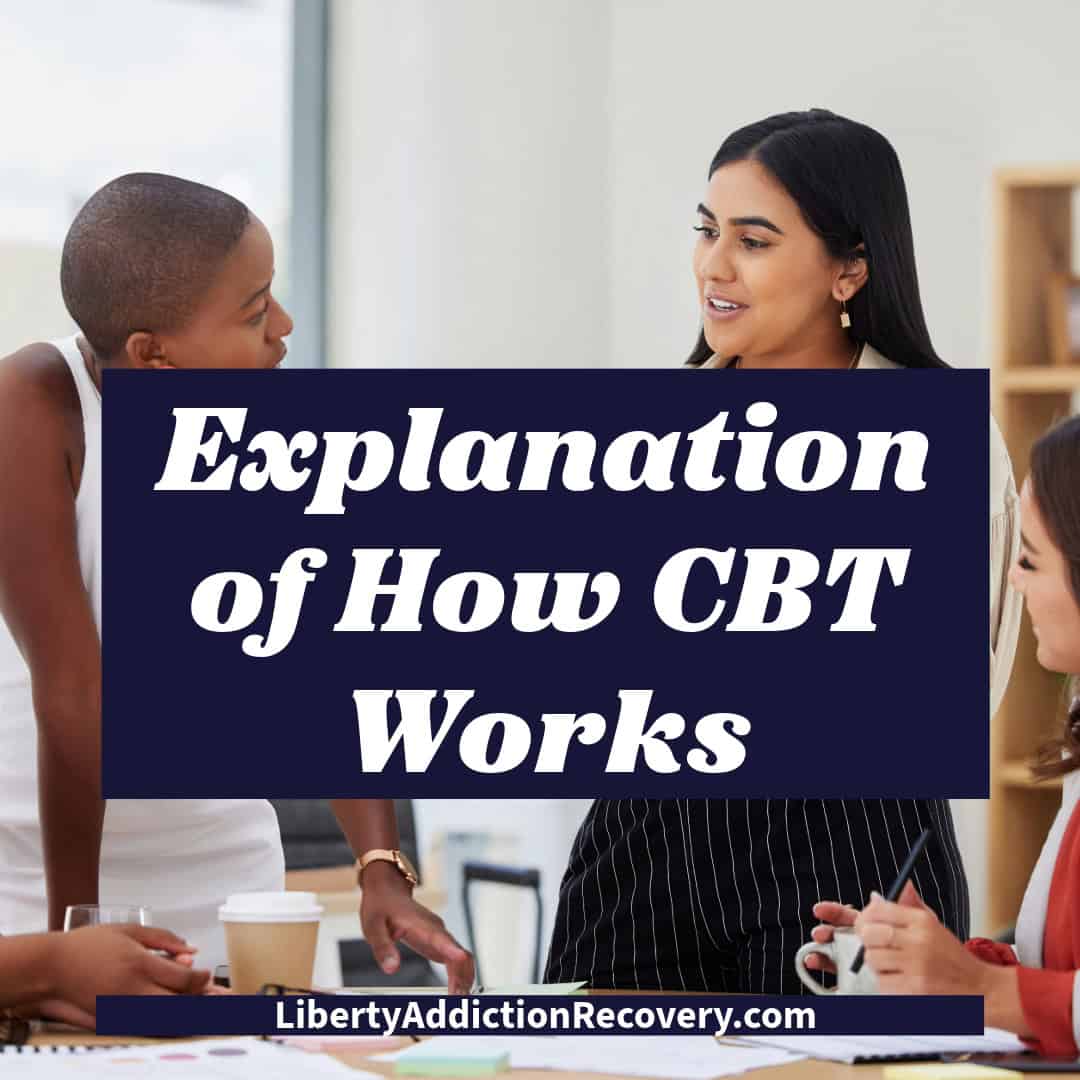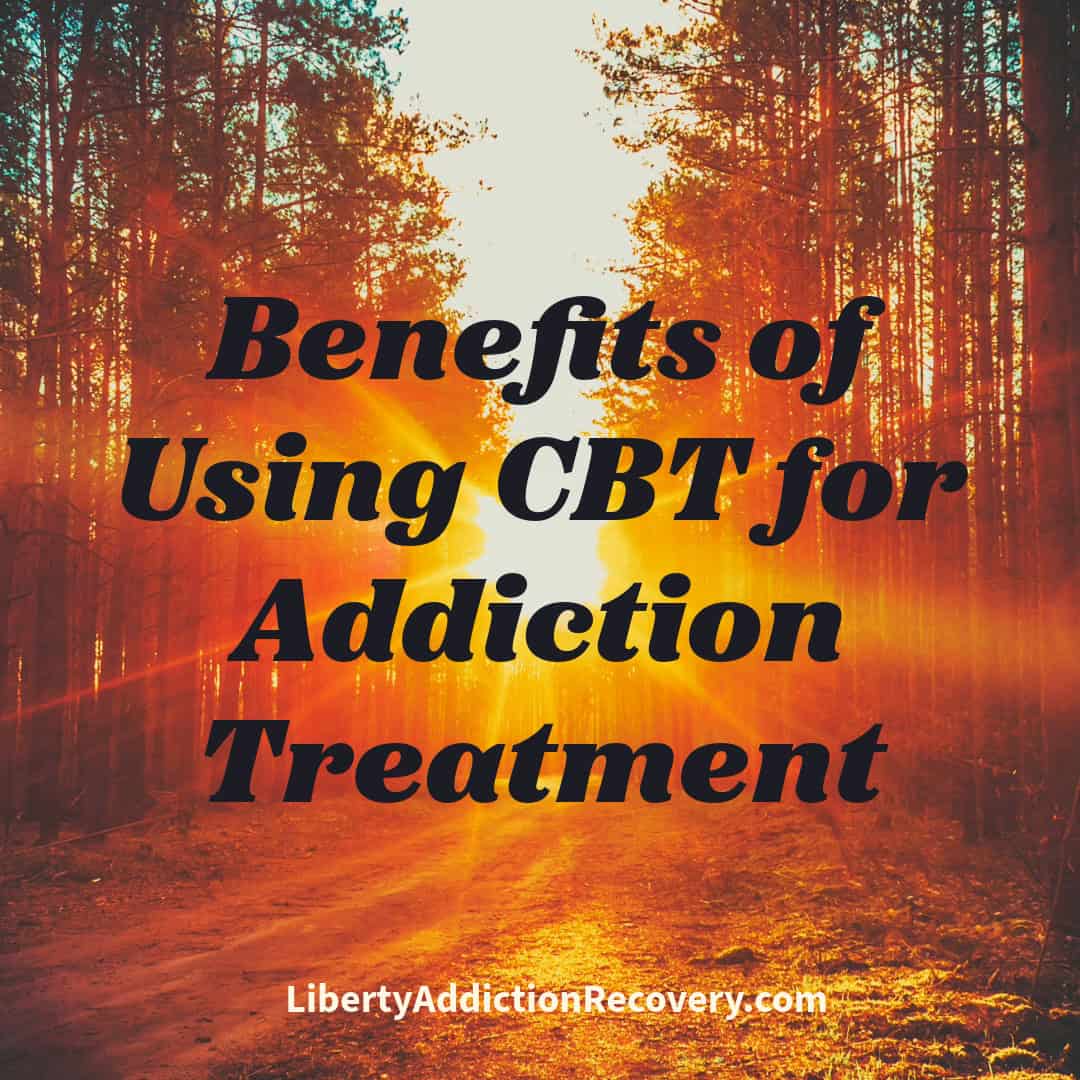Cognitive Behavioral Therapy for addiction treatment focuses on breaking the cycle of negative thoughts and behaviors that contribute to substance abuse. CBT helps individuals develop healthier ways of thinking and behaving by addressing these cognitive distortions. The therapy is typically structured and time-limited, making it a practical choice for many seeking recovery. At Liberty Addiction Recovery Centers, we recognize the importance of integrating therapies that not only address the symptoms of addiction but also get to the root of the problem.
What is Cognitive Behavioral Therapy (CBT)?
Definition and Core Principles of CBT
Cognitive Behavioral Therapy (CBT) is a type of psychotherapy that focuses on identifying and changing negative thought patterns and behaviors. Unlike some traditional forms of therapy that delve into past experiences, CBT is present-focused and action-oriented. It operates on the principle that our thoughts, feelings, and behaviors are interconnected. By changing the way we think, we can alter the way we feel and behave.
According to Asma Rehman, who provides individual therapy in Houston, CBT can be particularly effective in helping individuals work through grief. By addressing negative thought patterns associated with loss, CBT can guide individuals toward healthier coping mechanisms and emotional resilience during the grieving process.


Historical Background and Development of CBT
CBT was developed in the 1960s by Dr. Aaron T. Beck, a psychiatrist who observed that his patients had an internal dialogue that influenced their emotional states. He theorized that negative thought patterns were at the heart of many psychological issues, including addiction. Over the years, CBT has evolved and expanded, becoming one of the most widely researched and practiced forms of psychotherapy. Its efficacy in treating a variety of mental health disorders, including addiction, has been well-documented.
Explanation of How CBT Works
The primary goal of CBT is to help individuals recognize and challenge distorted thinking patterns and replace them with more realistic and positive thoughts. In the context of addiction, this means identifying the triggers and thought processes that lead to substance use and developing healthier coping mechanisms. CBT typically involves the following steps:
- Assessment: Identifying the specific thoughts and behaviors contributing to the addiction.
- Goal Setting: Establishing clear, achievable goals for therapy.
- Skill Development: Learning new skills and strategies to manage cravings, stress, and other triggers.
- Practice and Application: Applying these skills in real-life situations with the guidance of a therapist.
By systematically addressing the cognitive and behavioral aspects of addiction, CBT empowers individuals to take control of their recovery journey.

Techniques and Methods Used in CBT for Addiction Treatment
CBT employs various techniques to address addiction. Some of the most common methods include:
- Cognitive Restructuring: This involves identifying and challenging irrational or harmful thoughts. Clients learn to replace these thoughts with more balanced and realistic ones.
- Behavioral Activation: This technique encourages clients to engage in activities that promote positive emotions and reduce reliance on substances.
- Exposure Therapy: Clients are gradually exposed to situations that trigger cravings, helping them develop coping strategies in a controlled environment.
- Skills Training: Clients learn practical skills to manage stress, improve communication, and handle social situations without resorting to substance use.
- Relapse Prevention: CBT teaches clients to recognize early warning signs of relapse and develop a plan to maintain sobriety.
How CBT is Used for Addiction Treatment
Detailed Explanation of CBT for Addiction
In CBT sessions, therapists work closely with clients to identify the thoughts and beliefs that drive their addictive behaviors. For example, a person might believe that they need alcohol to socialize or cope with stress. By challenging and reframing these beliefs, CBT helps clients see their addiction from a different perspective, reducing its hold on their lives.
Benefits of Using CBT for Addiction Treatment
Psychological Benefits
One of the most significant advantages of Cognitive Behavioral Therapy for addiction is its positive impact on mental health. By targeting negative thought patterns, CBT helps clients develop healthier ways of thinking. This shift can alleviate symptoms of anxiety and depression, which are often intertwined with addiction. Clients learn to manage stress and emotional triggers more effectively, leading to improved overall mental well-being.
Behavioral Benefits
CBT equips individuals with practical tools to change their behavior. This includes learning to resist cravings, avoid triggers, and develop healthier habits. By focusing on actionable strategies, CBT helps reduce substance use and prevents relapse. Clients gain a sense of control over their actions, fostering a more stable and sober lifestyle.

Social Benefits
Addiction often strains relationships and social interactions. CBT addresses these issues by improving communication skills and fostering healthier relationships. Clients learn to assert themselves, set boundaries, and engage in social activities without relying on substances. This enhances their social functioning and helps rebuild trust with family and friends.
Conclusion – Cognitive Behavioral Therapy for Addiction
Cognitive Behavioral Therapy for addiction offers a powerful, evidence-based approach to recovery. By addressing the underlying thoughts and behaviors that fuel addiction, CBT empowers individuals to take control of their lives. At Liberty Addiction Recovery Centers, we are committed to providing personalized CBT treatment plans that cater to the unique needs of each client. Our goal is to help you not only achieve sobriety but also develop the skills and resilience needed for long-term recovery.
If you or a loved one is struggling with addiction, don’t wait. Reach out to Liberty Addiction Recovery Centers today to learn more about our comprehensive CBT programs and start your journey toward a healthier, addiction-free life.

Reach Out – We’re Here to Help
At Liberty Addiction Recovery Centers, we prioritize evidence-based treatments like CBT to ensure the best outcomes for our clients. Our comprehensive approach integrates CBT into both our residential and outpatient programs. We provide personalized care that addresses your unique preferences at the level of care you require.
Our therapists and counselors play a crucial role in guiding clients through their CBT journey. They provide a supportive and non-judgmental environment where clients can openly discuss their thoughts and feelings. By offering expert guidance and feedback, our therapists help clients challenge negative thought patterns and develop healthier behaviors.
Frequently Asked Questions (FAQs)
1. What is Cognitive Behavioral Therapy (CBT)?
Cognitive Behavioral Therapy (CBT) is a type of psychotherapy that focuses on identifying and changing negative thought patterns and behaviors. It is an evidence-based treatment that helps individuals develop healthier ways of thinking and behaving, making it highly effective for addiction treatment.
2. How does CBT help in addiction treatment?
CBT helps in addiction treatment by addressing the cognitive distortions and behaviors that contribute to substance abuse. Techniques like cognitive restructuring, behavioral activation, and skills training enable individuals to manage cravings, avoid triggers, and develop healthier coping mechanisms.
3. What are the benefits of using CBT for addiction treatment?
The benefits of using CBT for addiction treatment include improved mental health, reduced substance use, and enhanced social functioning. CBT helps clients develop practical tools to resist cravings, manage stress, and rebuild relationships, leading to a more stable and sober lifestyle.
4. How is CBT implemented in addiction recovery programs at Liberty Addiction Recovery Centers?
At Liberty Addiction Recovery Centers, CBT is integrated into both residential and outpatient programs. Each client receives a personalized CBT treatment plan that includes regular therapy sessions, homework assignments, and practical exercises. Our therapists provide expert guidance to help clients apply CBT techniques in real-life situations.
5. What makes CBT an evidence-based treatment for addiction?
CBT is considered an evidence-based treatment for addiction due to its extensive research and proven effectiveness. Studies have shown that CBT helps reduce substance use, prevent relapse, and improve mental health. Its structured and goal-oriented approach makes it a reliable choice for long-term recovery.
Helpful Links
For more information on our services and resources, explore the following links:
- Learn more about our rehab centers in Utah.
- Discover how to choose the right treatment for addiction recovery in Utah with our guide: Addiction Recovery Utah: Choosing the Right Treatment.
- Get additional addiction help from a recommended therapist in Ogden, Utah.
- Stay updated with the latest insights and stories on our blog.
- Know what questions to ask when reaching out to rehab facilities with our helpful FAQ: What to Ask When Calling Utah Rehab Facilities.






